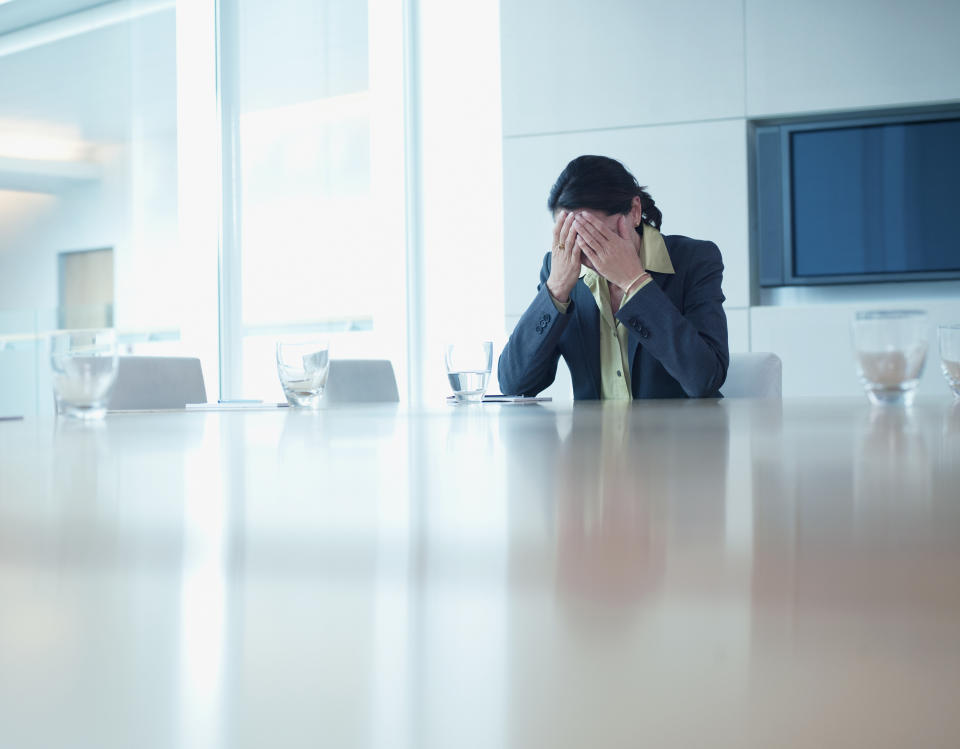Why do meetings drain you of energy?

It’s a scenario many of us have experienced. It’s mid-morning and your manager has called your team in for a meeting.
You’ve actually got things to say but as time drags on, you find it difficult to focus. The coffee has run dry and you feel zapped of energy — and by the time the meeting is finished, you can’t believe you have the rest of the day to get through.
According to a 2018 survey of 2,000 people from the UK, France and Germany, almost a quarter (23%) of those surveyed said they had witnessed someone fall asleep in a meeting. More than a third admitted to switching off mentally.
So why do we find meetings so tiring?
Meetings are a chance to catch up with managers, employees and colleagues and can be a good opportunity to bounce ideas around. But processing large amounts of information can be draining, explains Gemma Leigh Roberts, organisational psychologist and founder of Career Compass Club.
“Your brain is constantly bombarded with information, which is received through your senses. The brain switches on attention by filtering important information and moving it up the list for deeper processing,” she says.
“This process requires deep concentration, which takes a lot of psychological energy. At its core, that’s why we tend to lose energy as a meeting progresses and why long meetings can be particularly tiring.”
How we handle meetings depends on our personalities, too.
“In any company, there will be a mix of people across the introvert-extrovert personality spectrum, and introverts tend to find meetings particularly exhausting,” Roberts adds.
“Social events and navigating office politics during a meeting requires constant stimulation, which can take up a lot of energy for introverts, whereas extroverts rely on social stimulation to recharge their energy levels.”
READ MORE: Coronavirus: Why it's OK to take a break from Zoom meetings and virtual pubs
Another problem is that many businesses are too ‘trigger happy’ when it comes to calling a meeting.
Sometimes, a long, dreary meeting can easily be replaced with a quick email — leaving employees with more time to spend on their actual work. When researchers from Harvard Business School and Boston University surveyed 182 senior managers across several industries, the results were eye-opening — 65% of senior managers said that meetings keep them from completing their own work and 71% found them to be unproductive and inefficient.
With many of us working from home during the coronavirus outbreak, our meetings are taking place at our kitchen tables and from our sofas over Zoom, Skype and other video conferencing platforms.
Even in the comfort of our own homes, many have reported experiencing ‘Zoom fatigue’ — a feeling of exhaustion.
“One reason may be that most video calling platforms will include the user’s own camera view on the call screen, says Dr Linda Kaye, a senior lecturer in psychology at Edge Hill University.
“It is likely that this is enhancing our self-awareness to a greater level than usual, and therefore resulting in us making additional self-presentational efforts than in face-to-face interactions in the real world.
“Another explanation for fatigue may simply be from technical restrictions and our inability to be able to fully use the usual array of social cues and non-verbal communication. Within video calls, the bandwidth of social cues is much narrower, and we have to pay additional attention to others’ behaviour to enable us to monitor social interactions effectively.”
We might also just be over-scheduling ourselves too — either because we have more free time, or because our bosses think we do.
READ MORE: Should we all be doing walking meetings?
Most managers won’t relish the idea of scrapping meetings altogether, so what can we do to solve the problem?
The solution
Firstly, if you know you are going to be in a long meeting — prepare for it. Have water and coffee on hand, have bullet points in front of you and if you are in a virtual meeting, do it somewhere with natural light and fresh air (such as an open window).
Employers should also ensure meetings are absolutely necessary and have a clear structure to prevent them dragging on. “In lockdown conditions, a lot of employees today are talking about the amount of office meetings they used to have that could have been emails instead,” Roberts says.
“This sentiment highlights that if someone feels they shouldn’t have to be in the meeting, it can be stressful thinking about all the other work that still needs to get done. Employers should set expectations for each meeting and communicate who needs to be there for what reason, as well as what the outputs of the meeting will be.”

 Yahoo Finance
Yahoo Finance 